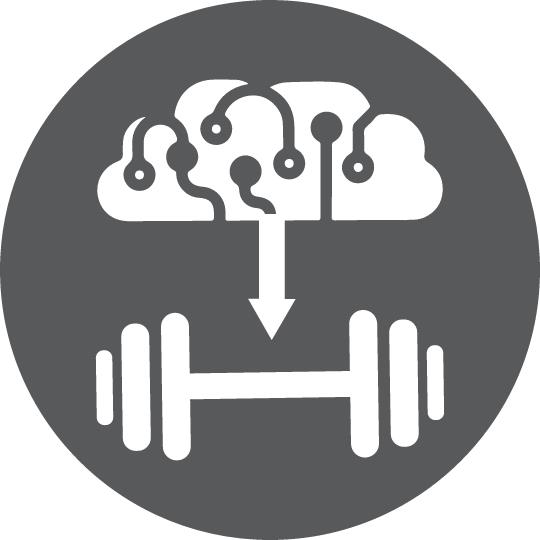The evidence is mounting that resistance training provides significant brain health and cognition benefits.
In research, aerobic exercise is by far the most commonly studied modality of exercise and has been shown conclusively to positively affect cognitive function in both the short and long-term. Now, more research efforts are going towards illustrating the brain benefits of strength training.
And, I’ve got some interesting ideas as to what this means for the future of strength training (and fitness in general).
Recent research highlights:
- A study in NeuroImage: Clinical in 2020 where progressive resistance training led to improvements in 100 people with mild cognitive impairment and neuroprotective benefits to Alzheimer’s Disease-vulnerable parts of the hippocampus.
- Weight training 1-2x per week improved memory, enhanced selective attention, and improved conflict resolution while balance and toning did not in a group of women aged 65-75 in a study in the Archives of Internal Medicine.
- Women between ages 60-70 participated in a 12-exercise resistance program 3x per week for 12 weeks and showed a 19% improvement in cognitive capacity in a study in Clinical Interventions in Aging.
My opinion: This is of course encouraging news AND a strong reminder that doing aerobic training and strength training are still not enough.
Our brains help us move and navigate life and the world. To do so successfully requires numerous fitness characteristics, a topic I covered the specifics of in this previous post, “Still Life or Thrill Life.” If you want to know what all the fitness characteristics for humans are, check that out.
The takeway is that we need to do more than just “cardio” and “strength training” if we want to cover all the bases of what fitness can do for not just our bodies but our brains. Anything we can potentially do physically, we should spend a little time training.
And we do not need to wait for more research! If you want to do well at trivia night at your local pub then by all means, wait until increased research is done to tease out what each specific fitness characteristic is connected to and protects which brain regions.
But all you need to know is that if you train all the physical characteristics of fitness, you will – obviously – maximize brain fitness as well. (Because anything we do can potentially do physically is controlled by some part of our brains.)
Teaser Alert
(In the next post, I am going to share some thoughts more specific to strength training and what types of equipment would be better suited to enhancing brain fitness concurrently with physical fitness.)

